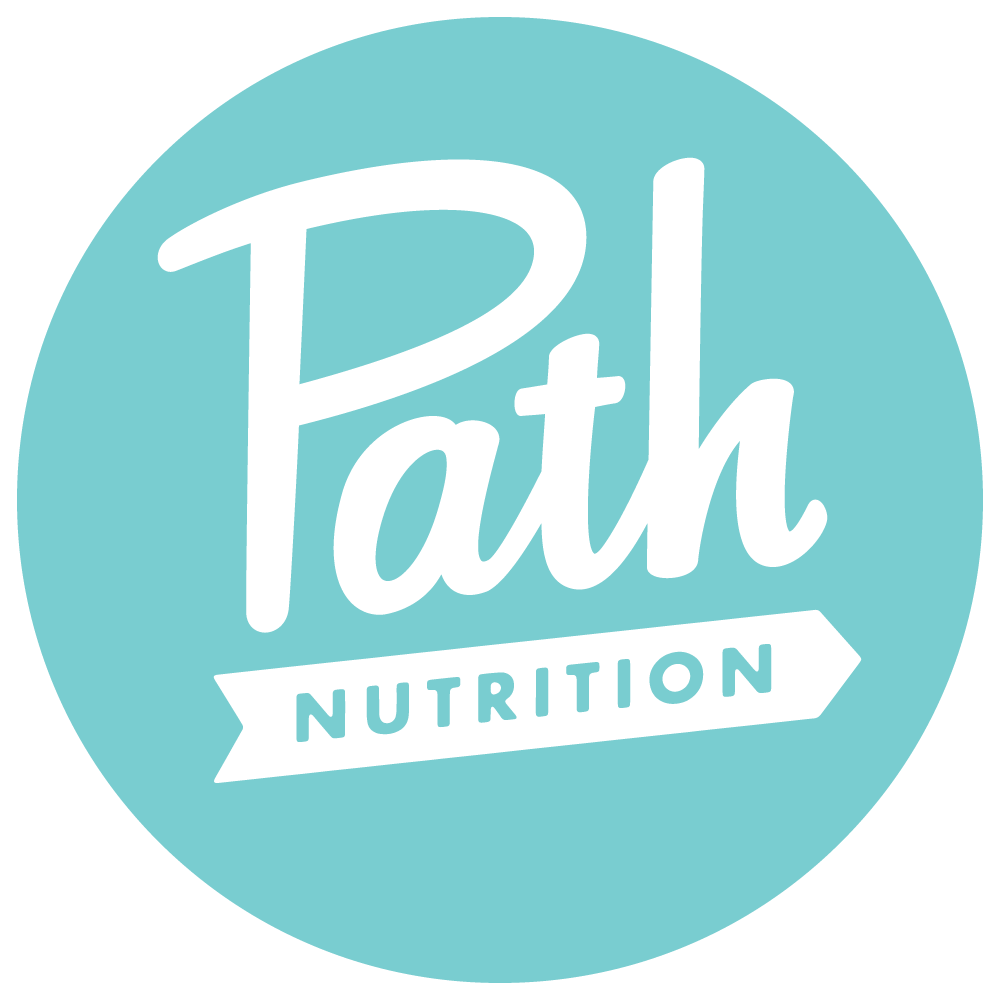Why You Binge Eat
Why You Binge Eat
Here are some common reasons why people binge eat or “eat a lot of things at once.”
Binging is defined as a period of excessive indulgence such as overeating but can also apply this definition to drinking, drugs, or anything you consume…including TV, gaming, or social media. This word is may be controversial and is often charged with a lot of emotions like shame, guilt, or fear because you’ve probably been told that binging is “bad” or that you shouldn’t ever do it or there might be something wrong with you if you’re doing it which we don’t find too particularly helpful.
We also want to be clear that like any complex behavior, there is a spectrum of experiences and relationships with binging ranging from occasionally eating a lot of food to a diagnosed eating disorder. Here’s our disclaimer. We do not work with active diagnosed eating disorders because there are professionals highly specialized and qualified in this field and we leave that work to them. This information is not meant to diagnose or treat eating disorders on any scale. If you believe you might have an eating disorder it’s always a good idea to speak to a professional. If this particular topic feels especially charged or triggering please stop here.
This is about the other end of this spectrum. There are people out there, like maybe you, that find themselves in patterns with food that feel “off” or at times a little out of control. These patterns are not creating any major disruptions in your life but you know your relationship with food needs help. This is for when you do those things with food that feels off to you. There is no normal but if it feels off or not normal to you then that’s what we want to talk about.
For you, we want to discuss binging and why you do it so you can start to address this relationship.
First, let’s start by saying that when a client comes to me using the word “binge” I always ask what that means to them. Because everyone describes it differently. What they eat, when they eat it, how much, and why they think they do it is so unique to them, that it’s almost criminal to wrap up this rainbow of experiences into a one-word action. I like to strike this word from their vocabulary if at all possible and focus on the facts of each individual experience. We invite you to start trying this immediately by stop using the word and start calling it whatever you actually did. Maybe it’s, “I ate several things at once” or state the facts only. It really does help create a neutral foundation for moving forward.
Now we’re going to share a few of the most common reasons why you might be binging. Again, this can be super complex and perhaps a mix of reasons but the point is to give you a starting point to build some understanding and awareness of this behavior.
Reason #1: It’s physical.
Maybe you are in the habit of skipping meals because you’re so busy or not connected to your natural hunger, maybe your meals are too small because you’re used to dieting and restricting calories. Sometimes using diet foods contributes because they aren’t actually that filling or satisfying. All of these are about your physical hunger and when these things happen we tend to need more at some point so we find that either late afternoon or after dinner people are actually just very hungry which means they tend to overeat or eat whatever they can get their hands on, which is actually a very normal biological response. If this sounds familiar, some really simple tweaks can help balance your day out. Often people need coaching or therapy to reduce their diet mentality and create new habits that feel good to them.
Reason #2: It’s Neurological or Biological. Your brain is hungry for dopamine and serotonin…and sometimes it’s actually yeast or bacteria!
Having the need to eat many things at once can be tied to actual alterations in the neurotransmitters. We may have lower dopamine levels or have neurodivergent brains like ADHD so we naturally keep going towards getting that neurochemical boost. Or sometimes we can be overexcited and the food can actually calm us down. OR, sometimes we have an imbalance of yeast or bacteria in our gut that drives an intense desire to eat more foods even when we are not physically hungry. Learning more about your body and understanding what it needs can help you create strategies for staying nourished.
Reasons #3 - It’s Emotional.
Sometimes we have no capacity to feel the feelings like anger, grief, anxiety, etc. Many of us are not given coping tools in childhood so we develop coping mechanisms like eating for comfort. This behavior is, or was, protective and simply helping you to survive. We disagree when people say there’s something wrong with binging because that’s just how your body is behaving to survive, it’s actually serving you, or at least at some point it was. But then that behavior maybe becomes more deeply wired so you might find maybe it’s not serving you now but it was then. Coaching and nutritional therapy are excellent modalities for building new skill sets for coping and eating feelings less often.
Reason #4 - It’s medications or substances.
Sometimes we hear that medication might cause weight gain, but what does that mean? Some medications disrupt leptin/ghrelin which are your hormones that provide signals telling you that you are full or hungry. Some medications block your hunger so you don’t eat and then when that wears off then you feel starving.
Substances like THC make you hungry. The munchies are real! Just because something is natural or harmless doesn’t mean there aren’t effects. It’s important to be mindful of how different things feel in your body and plan accordingly.
Alcohol can loosen you up and you feel super relaxed and then you eat. When you really drink too much it can disrupt blood sugar and lead to future cravings or needs to binge in addition to that gnarly hangover.
I don’t believe there is a “normal” with food, just what is normal for you. We find it unhelpful to view binging as “wrong” or “not normal” because sometimes you decide to indulge and eat a lot of food and sometimes you don’t. Only you know what feels good to you. Sometimes it’s not the actual action but the way you think about it. It’s probably not going to feel great if you’re hiding or feeling shame or guilt. Chasing what is normal probably isn’t going to be super helpful. Instead, decide what feels good to you and what doesn’t. If something doesn’t feel good. It’s ok to ask for help. We all need it sometimes.
If you’re ready, we teach our clients how to process feelings, change thought/belief patterns, educate them on basic nutrition, and make sure they’re healthy on the inside so that radiates outward.


